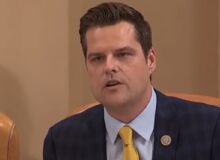(Official editorial on the abortion case by the Washington Examiner, Dec. 5)
To listen to the liberal justices, one would think the Supreme Court’s job is not to uphold the Constitution but to maintain “public support.”
Their boasted concern for the court’s reputation should be largely irrelevant in decision-making other than in presuming they will be supported widely if they act in good faith interpreting the law. Filtering constitutional jurisprudence through public relations concerns is improper. It undermines the very Constitution the justices are sworn to uphold.
Yet, repeatedly during oral arguments in the Dobbs v. Jackson Women’s Health case on Mississippi’s new law restricting abortions, liberal justices harped on how overruling the “super case … the rare case, the watershed cases” of Roe v. Wade and Planned Parenthood v. Casey could be “what kills us as an American institution.”
All three phrases quoted above first came from remarks and questions from Justice Stephen Breyer. Justice Sonia Sotomayor wondered whether the Supreme Court will “survive the stench that this creates in the public perception” that the court has been politicized. Justice Elena Kagan worried about what people would be “thinking” about the high court.

These concerns amount to a misapplication of Chief Justice John Roberts’s stated preference for bolstering the Supreme Court’s “credibility and legitimacy” by favoring narrower legal decisions that can secure near-unanimity rather than more sweeping rulings that split it 5-4 along ideological lines. Even that preference of Roberts is problematic, for it can leave key constitutional questions unanswered longer than necessary. At least, though, Roberts’s predilection for delaying big constitutional concerns does not extend to making “credibility” superior to the Constitution’s text.
Because seeking “narrower” decisions also often means ruling on statutory grounds rather than constitutional ones, Roberts’s conception at least has the virtue of having the court defer to elected branches of government rather than seize a power to pronounce broad edicts on policy issues.
Yet in the Dobbs oral arguments, liberal justices sought to subvert the constitutional text just as they did in Casey three decades ago…. [The full editorial is here.]






